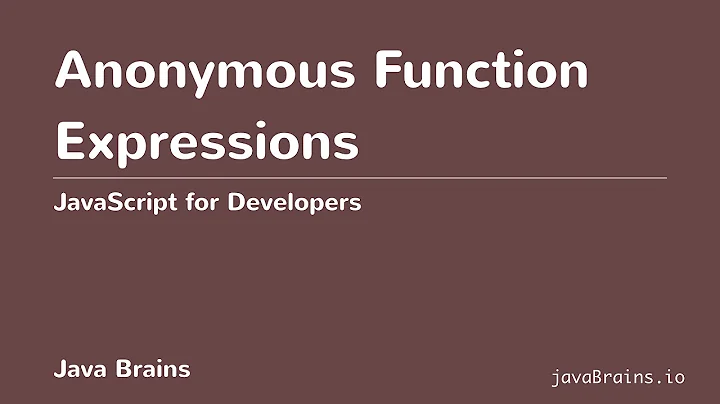Why use anonymous function?
Solution 1
I would say that anonymous functions show their beauty when there is good library classes/functions that use them. They are not that sexy by themselves. In the world of .net there is technology called LINQ that makes huge use of then in very idiomatic manner. Now back to PHP.
First example, sort:
uasort($array, function($a, $b) { return($a > $b); });
You can specify complex logic for sorting:
uasort($array, function($a, $b) { return($a->Age > $b->Age); });
Another example:
$data = array(
array('id' => 1, 'name' => 'Bob', 'position' => 'Clerk'),
array('id' => 2, 'name' => 'Alan', 'position' => 'Manager'),
array('id' => 3, 'name' => 'James', 'position' => 'Director')
);
$names = array_map(
function($person) { return $person['name']; },
$data
);
You see how nicely you can produce array of names.
Last one:
array_reduce(
array_filter($array, function($val) { return $val % 2 == 0; },
function($reduced, $value) { return $reduced*$value; }
)
It calculates product of even numbers.
Some philosophy. What is function? A unit of functionality that can be invoked and unit of code reuse. Sometimes you need only the first part: ability to invoke and do actions, but you don't want to reuse it at all and even make it visible to other parts of code. That's what anonymous functions essentially do.
Solution 2
It is useful especially for callbacks:
array_walk($myArray, function($value, $key) {
// do something
});
Solution 3
You normally use anonymous functions for functions which you need only once. This way you do not pollute the function namespace and don't invent strange function names like array_walk_callback1.
Solution 4
Perhaps most obvious reason is the use of callbacks. Take usort() function for example. There's no point introducing a one-line function, that will be used once and once only. Anonymous function (usually) fits better this task.
Solution 5
You can pass anonymous functions around by saving them in a variable.
$a=function() {
echo 'hello world';
};
This means you can also use them more than once.
Related videos on Youtube
Comments
-
Shoe about 4 years
Possible Duplicate:
How do you use anonymous functions in PHP?Why should i use an anonymous function? I mean, what's the real deal using it? I just don't really get this. I mean, you use function to make the code more clean or to use it more than once. But Anonymous functions just don't do neither the first nor the second. I googled them and i couldn't find anyone asking the same problem.
-
Bradley Kreider over 13 yearsCan you remove closures from the title? It's slightly tangential to the meat of your question.
-
jon_darkstar over 13 years@rox0r - you really think closures are unrelated? seemed appropriate to me so i incorporated into my answer in way i hope is useful for demonstration. obviously you can have lambda funcs without closures, but not vice-versa
-
Bradley Kreider over 13 years@jon: I think they are related, but his intent seemed to be focused on just named vs anon. functions. I think it is good that you mentioned closures, i just thought it was misleading in the title.
-
-
Shoe over 13 yearsBut if i use that function just once why shouldn't just don't declare any functions at all? Neither the normal nor the anonymous one?
-
gnarf over 13 yearsHopefully you never invent those strange function names. Things like
returnUsefulDataFromArraywould be more useful :) -
gnarf over 13 yearsAnd do you really want your HTML polluted with tags describing presentation, as opposed to content?
-
methodin over 13 yearsAnonymous functions help when you MUST USE A FUNCTION - like in usort, array_map etc... in these cases traditionally you would have to create a function somewhere in the code and pass the name of the function in. With anonymous functions you can just declare it on the fly. It also helps with callbacks. Your examples seem to indicate you are thinking of anonymous functions as just ways to group code - which they can be, but that's not the real purpose of them.
-
Bradley Kreider over 13 years@charlie Sometimes you need to have a function to pass in as a parameter. That's why people mention callbacks. When callbacks are used, you have to pass a function to the callback.
-
Andrey over 13 yearshow is it better then
foreach? This is meaningless example. It shows something that can be done using another construct even easier. it doesn't show usefulness of anonymous function. really. -
Shoe over 13 yearsWhy don't just declare a function then?
-
Andrey over 13 years"more than once". Can't you use regular function more then once?
-
Shoe over 13 yearsEdit your last piece of message, please.
-
 bcosca over 13 yearsYou ought to remember that declared functions are global, while anonymous functions are not. You don't want to pollute the global namespace with use-once and trivial functions
bcosca over 13 yearsYou ought to remember that declared functions are global, while anonymous functions are not. You don't want to pollute the global namespace with use-once and trivial functions -
Shoe over 13 years@rox0r I got that, but you could also use a string with the function name as callback. Anyway thanks, know i know.
-
jon_darkstar over 13 yearsgladly would, but im not sure what you mean
-
 netcoder over 13 yearsThe OP didn't ask what was better. It asked what is it useful for. The answer: callbacks. If you want to provide 1000 examples, feel free to do it in your own answer.
netcoder over 13 yearsThe OP didn't ask what was better. It asked what is it useful for. The answer: callbacks. If you want to provide 1000 examples, feel free to do it in your own answer. -
jon_darkstar over 13 years+1 for non-trivial use and for composing reduce and filter
-
Shoe over 13 yearsThe last 2 lines should be code right?
-
jon_darkstar over 13 yearsoh yeah guess so, i was thinking of createCallback as the real 'meat' of it, but i suppose i should make them code too
-
Bradley Kreider over 13 years@charlie: Do you mean function name instead of string? Yes. I was responding to "why declare any functions at all" that is above.
-
Andrey over 13 yearsRight. "It asked what is it useful for." in your example they are not useful at all. I am not saying that you should provide 1000 examples. One could be enough, but a representative and relevant one.
-
 netcoder over 13 yearsAlso, variable functions can be destroyed using
netcoder over 13 yearsAlso, variable functions can be destroyed usingunset, while global functions cannot. -
 netcoder over 13 years@Andrey: If you don't feel my answer is useful enough, don't upvote it, and provide what you think is a better answer. End of story.
netcoder over 13 years@Andrey: If you don't feel my answer is useful enough, don't upvote it, and provide what you think is a better answer. End of story. -
Andrey over 13 years@jon_darkstar in C# it is trivial :) it is more functional style.
-
Derek Adair over 13 yearsdidn't see that it was tagged w/ php. woops
-
 James Spence about 9 yearsJust stumbled upon this in my own travels, it was immediately helpful five years later. +1
James Spence about 9 yearsJust stumbled upon this in my own travels, it was immediately helpful five years later. +1 -
 CragMonkey almost 9 yearsYou said "a closure... is NOT synonymous with anon function", however, the PHP manual specifically states otherwise ("Anonymous functions, also known as closures,..." php.net/manual/en/functions.anonymous.php ). What distinction do you see?
CragMonkey almost 9 yearsYou said "a closure... is NOT synonymous with anon function", however, the PHP manual specifically states otherwise ("Anonymous functions, also known as closures,..." php.net/manual/en/functions.anonymous.php ). What distinction do you see? -
jon_darkstar almost 9 yearstop answer here is a good explanation: stackoverflow.com/questions/4912116/…
-
Honinbo Shusaku almost 9 years@netcoder What is the use of destroying a variable, except for freeing up the name? Is
unsetsimilar tomyVariable = null;in Java, where it will eventually free up memory as well? -
 netcoder almost 9 years@Abdul: Scoping is very different in PHP vs Java. In fact, in PHP scoping is limited to global scope and function scope. e.g.:
netcoder almost 9 years@Abdul: Scoping is very different in PHP vs Java. In fact, in PHP scoping is limited to global scope and function scope. e.g.:{ $foo = "bar"; } echo $foo;works in PHP.{ String foo = "bar"; } System.out.println(foo);doesn't in Java. Un-setting variables can be useful to prevent polluting the scope that may eventually introduce programming errors. That applies to both variables and variable functions.






